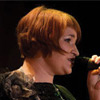Many people do not even realize that they suffer from anxiety personality disorder, because this disorder is well “disguised” under character traits. Therefore, there is no official data on the distribution of pathology. Unofficial statistics show that most often this violation is characteristic of women, and at a rather young age - from 20 to 29 years. At the same time, the disease is peculiar to other age groups, many have lived with it for decades. In this article we will explain what causes anxiety personality disorder, how to identify and treat it.
What it is?
Man is created by a social being. This means that a healthy person needs communication, positive emotions from this communication. The person suffering from anxiety disorder experiences a deep sense of inferiority, he does not love himself, he is shy of himself, painfully perceives even the slightest criticism and tries to avoid social contacts. Therefore, anxiety personality disorder is often called persistent avoidance or evasion disorder.
Such a person believes that his actions can not be approved by someone. And often afraid to do something just because of the prospect of being ridiculed. He himself sincerely believes that his isolation comes from the inability to communicate. Most often he is in anxiously depressed mood. Such a disorder usually develops in adolescence and persists throughout life.
Previously, it was not considered a separate ailment and was described only as a symptom in some mental disorders.
Not so long ago, anxiety personality disorder was allocated to a separate pathology.
In the classification of psycho-types created in the middle of the last century by the German scientist Carl Leonhard, suffering from this disorder are pathological psychotypes. According to Leonard, such people are of an anxious type and often suffer from compulsive-anxiety syndrome, psychoasthenia (neurotic state). Doubting psychasthenic often not only experiences difficulties in dealing with people, but also suffers from real phobic disorders - fears of society, etc.
Psychiatrists, psychotherapists and clinical psychologists deal with the treatment of anxiety personality disorder. In the International Classification of Diseases (ICD-10), the corresponding number is assigned to pathology - F 60.6.
Causes
Why such a disorder develops is unequivocally difficult to answer. Despite the best efforts and efforts of physicians and scientists, it has not yet been possible to establish where this pathology comes from. It is believed that a combination of unfavorable social and psychological factors may influence the human psyche during the period of adolescence. At the same time, not the last place is given to genetically determined mechanisms of development.
Very often the appearance of the disorder is associated with the temperament of a person, and he is always inborn. Melancholic people, who in their childhood demonstrate excessive shyness, fearfulness and isolation in behavior, are especially susceptible to ailment, especially in situations where a child or teenager finds himself in a new environment for which he has yet to get used to and adapt.
Not the last place is given to the style of education - If in childhood a child with a melancholic type of temperament often hears criticism from adults, if his actions are rarely approved, if adults and peers sharply criticize him as a person, then a person gradually forms a “cocoon” in which he hides from society and criticism emanating from him. And such a "cocoon" is anxiety disorder.
Such families are usually characterized by a very strong, to a pathological morbidity, fusion between parents and children.
At the same time, a shy and timid child does not necessarily get sick; moreover, at a certain age, some kind of caution during social contacts is completely normal and natural, it is just a stage in the development of a child’s psyche, and manifestations of shyness and insecurity gradually disappear as a teenager becomes an adult.
The one who suffers from anxiety personality disorder, for the most part, forks between the strong feelings - on the one hand, he needs communication, he feels the need for him, but on the other - he is afraid of criticism, and therefore he tries to distance himself, to keep away from people.
Symptoms
Do not consider people with anxiety personality disorder social phobias. Social anxiety, which is characteristic of such a violation, causes them to more closely monitor their internal sensations, when it becomes necessary to contact someone, while a social phobia does not entice a contact with even urgent need.
Sociophobes are not interested in people, and people with anxiety disorder, on the contrary, are very attentive to the reactions of others to themselves. At the same time, they are incredibly tense, they are very much afraid to cause criticism or to do something wrong. At the physical level, such tension is accompanied by either confused speech or reticence and taciturn. The deeper a person at the time of communication with someone is immersed in his own feelings, the harder he is given fluent free speech.
Anxiety disorder is often combined with other fears. Almost half of people with such a violation are afraid of spiders and are prone to panic, every third person has signs of social phobia.
In childhood, with developing anxiety personality disorder, the child is very afraid to go to the blackboard, to speak in front of a group of people. He tries to avoid situations in which he may suddenly become the focus of attention of others, and also fears all new situations that were not previously familiar. As the child grows, the disorder progresses. So, teenagers with anxiety disorder do not want to participate in competitions, refuse to take part in holidays at school, and diligently avoid communicating with their peers. Often they have no friends at all, they try to spend their free time alone, reading a book or listening to music.
They fantasize a lot, have a very developed imagination.
If such a person finds himself in a team, then he tries to physically take a position in which a solid distance separates him and other people. People with such a violation are characterized by heightened suspicion - even the usual words of others, which do not contain offensive or critical motives, they often perceive at their own expense, begin to “dig for themselves” and search for the reasons for the invented dissatisfaction of others.
The need for communication they have, and it is quite high. But they can only communicate where they are completely confident that they are loved and accepted. If something in the familiar atmosphere went wrong, they “close” and refuse to communicate. It is difficult for them to find "their own person", to create a family, and therefore such people very often remain single in life. But if you still manage to marry or marry, then all communication for those who suffer from anxiety disorder, is concentrated only with his second half. An outsider to this family will not be allowed to enter.If over time the partner leaves or dies, then until the end of his days the person with anxiety disorder usually remains alone. To compensate him for the loss no one else can.
From the side of people with anxiety disorder look ridiculous, awkward, they are often not understood and rejected for real. Then the person suffering from the disorder begins to curry favor with people, which causes even greater rejection.
It is difficult for them to achieve success in their studies, in the profession, since both education and work are somehow connected with social contacts. They never become leaders, teachers, politicians, artists, deliberately avoiding professions that involve public speaking. Most often, the disturbing asthenics remain "co-starters", preferring a quiet place, individual work, in which there is no place for the collective implementation of any task. They find it difficult to quit, they are afraid to remain without work at all. If there is a need to move to another place, this transition will always be a great personal disaster for a person, and he will always survive it very hard.
Relax in communication, these people can not even with a very close person, because they constantly monitor the reaction - whether they like what they say, whether the interlocutor approves of what they say. Therefore, it is also very difficult for psychologists to work with people suffering from anxiety personality disorder.
At any time, such a patient may withdraw and stop talking and contact, even if it simply seems to him that the specialist has doubted or disapproves of them.
Anxiety sufferers are afraid of rumors, gossip, ridicule, they are very dependent on public opinion., from what others say or can say about them. Unfortunately, there are a lot of alcoholics among adults with such a mental disorder, because alcohol at first helps them to relieve emotional tension in communication, and then, sooner or later, leads to a serious dependence.
Diagnosis and treatment
Psychiatrists and psychotherapists are engaged in diagnostics. It is very important not to confuse anxiety disorder with antisocial personality disorder, which is also called sociopathy. Sociopath denies society not only in itself, but also all social norms, principles and moral principles. It is important for the doctor to distinguish the disturbing disturbance from the schizoid. Schizoid types, in principle, do not want to communicate with anyone, whereas the anxious ones want, but they are afraid, and therefore tense.
There is also an dependent personality disorder in which people are painfully afraid of separation, cling to the object of communication or love with all their strength.
To understand all these nuances should be an expert. Self-diagnosis and attempts to close a “diagnosis” to a person in this case are unacceptable. In psychotherapy and psychiatry, there is a system of tests to identify signs of anxiety disorder. It is with them and begins diagnosis in the office of a specialist. At the same time, the doctor talks, observes, notes changes in the characteristics of the patient's speech skills.
According to the results of the initial survey, important diagnostic signs are constant tension, lack of confidence in one’s own strengths and abilities, in oneself, obsessive devaluation of one’s own personality compared to others (“they are yes, they can, and I’m far more ...”) to begin communication if no guarantees are received that no criticism will follow, a painful reaction to criticism, fear of disapproval. If a specialist confirms with tests at least four signs, he can talk about the presence of anxiety disorder.
These patients are most often not treated in a hospital, where the situation is new for them, and therefore potentially provoking new attacks, but at home, where everything is well known and understandable. There are special programs that include behavioral psychotherapy in combination with psychoanalysis.
At the initial stage, these programs help a person to understand and recognize the presence of internal “clips” and conflicts, and then understand their underlying causes.
A very effective method is to reassess experience. Together with a specialist the patient examines situations from childhood, adolescence, recent events. The task of the doctor is to help the patient to form a new look at old events, at parents and former classmates, at colleagues and neighbors, at acquaintances and strangers.
All this is from the field of psychoanalysis. As for behavioral therapy, it includes techniques for creating new mental attitudes, patterns, as well as training in free communication in special groups.
It is very important that a person receive not only individual home treatment, but also attend group trainings and classes. It is there that he will be able to test, apply, improve new attitudes, which the psychoanalyst helps to form, it is there that new techniques are fixed in communications with other people. Those who refuse group classes usually do not get any pronounced effect from the treatment. Based on a single psychoanalysis, pathology is not corrected.
At the final stage of treatment, the person begins to apply the received attitudes and skills in his daily life. Here, the main thing is not to break and not go back to the “cocoon”, because certain failures and mistakes happen to everyone. Gradually, a persistent habit of communicating normally and adequately responding to others is formed from new attitudes and patterns.
Projections for such a violation are usually very, very favorable, but only on the condition that the person still agrees to therapy. Self frustration does not pass. If the disorder is accompanied by other mental disorders, the treatment is more difficult, long, and not always gives the desired effect.
Sometimes in combination with psychotherapeutic programs, medication is recommended for the patient. Of course, there is no “magic pill” for the disorder, and the drug treatment alone does not give any pronounced effect. But as part of the treatment program, medications may find a place, especially if it is a serious disorder. In this case, it is recommended to take tranquilizers and antidepressants. Medicines will help reduce stress, reduce the symptoms of depression. These drugs belong to the group of prescription drugs and in pharmacies are sold exclusively by prescription. Of non-prescription drugs recommend sedatives, sedatives (Novo-Passit, etc.).
Neuroleptic drugs are used only when a person has anxiety disorder accompanied by delusions.
How to change forever?
Since it is difficult to do this on your own, you need to decide to go to a specialist. This will be the beginning of the path to change, which will benefit all, and first of all, the person himself. In carrying out the program recommended by the doctor, you need to remember that at any time you may need the support and assistance of a loved one or psychologist. Do not hesitate to contact, if something seems wrong, something does not correspond to the ideas about life.
A person who is determined to defeat anxiety personality disorder needs to remember what to do in order to promote effective healing. First of all, the daily regimen is important, you need to go to bed on time, avoiding insomnia or working at night. Night rest should be sufficient in time.
It will be useful to learn some techniques of relaxation, meditation, breathing exercises in order to learn to relax. If you attend a yoga group is still difficult because of the existing problem, it is worth practicing self-study.
A person struggling with anxiety personality disorder needs to learn not to pay too much attention to something alone., to dwell on something - it is harmful and dangerous in this situation. But an activity in which it will be possible to arbitrarily shift attention from one object to another will benefit.
No matter how much you want to relax with the help of alcohol, you should exclude alcohol intake, especially in order to become more relaxed in communicating with someone in a natural state.
For more on anxiety personality disorder, see the following video.





























